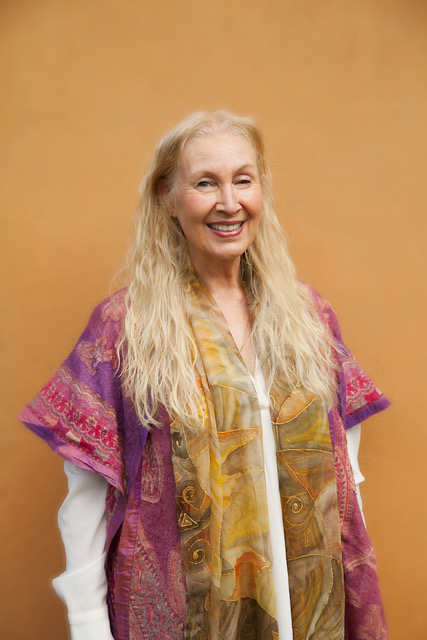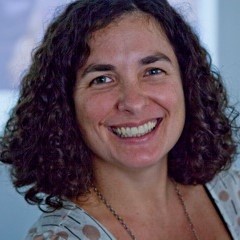This is a special opportunity to attend a full Ecovillage Design Education (EDE), LIVE and online, certified by Gaia Education and GEN. With top facilitators and experts from around the world, this 4.5 month live course is a transformative learning journey providing knowledge and practical skills for how to design thriving communities and societies within planetary boundaries.
After our first successful cohort (April – August 2021), we’re excited to again offer this programme running from 12 March to 24 July, 2022.
*See below for the full programme of topics and guest presenters.*
The Ecovillage Design Education programme (EDE) was born out of the experiences of long existing communities and cutting edge educators or transformative and particpatory learning in order to share how to create a new way of living with low environmental impact and high quality of life, bringing together the four areas of regeneration: social, ecological, economic, and culture/worldview.
These programmes are well known to be life changing. Previous participants have become change agents in their communities, cities and regions, capable of playing active roles in transitioning their communities, organisations and neighbourhoods, to more sustainable and regenerative practices, lifestyles and infrastructure, as well as leading more meaningful, joyful and healthier lives.
The course will equip you with skills and knowledge you will be able to put into action in any field or sector you are involved with, supporting you to become a facilitator of transformative learning environments and collaborative action.
The Ecovillage Design Education is for you if you want to…
- Gain confidence in participatory facilitation and building resilient learning communities
- Improve your communication skills and conflict management
- Explore shared leadership and participatory decision making processes
- Practice deep sharing & trust building
- Learn about appropriate environmental technologies
- Identify how to support and strengthen local economies
- Experience how to think globally and act locally
- Gain a holistic perspective of sustainability and community building
- Learn from the real experience of community builders and ecovillage founders
- Improve design and implementation skills for effective regenerative projects
- Work with others to explore your own dreams and plans, co-developing your projects throughout the programme.
The programme will explore the 4 areas of regeneration (social, ecology, economy and worldview) including formal classes with presentations, Q&A sessions, videos, exercises as well as group dynamics and deep sharing. Participants will create and co-develop group projects during the design sessions.
You will gain:
- A certification as a Designer in Sustainability (when you attend 90% of the course)
- Integrative design skills in four areas of regeneration: social, ecology, economy, and worldview
- New friends, ideas, inspiration, and hope!
As a student, you get access to:
- Live classes and workshops with amazing teachers, including ecovillage founders. Plus recordings of all live classes to watch or repeat at your leisure
- A vibrant online learning community with changemakers from around the world, where you can interact, plan, collaborate and share your progress, insights and inspirations
- Live Q&As and support to design your own project with facilitators Macaco Tamerice and Taisa Mattos.
- Powerpoint presentations, references, videos, exercises and course texts that are yours for life
Immersion
**According to the COVID-19 situation, we will explore opportunities for additional immersive weeks in an Ecovillage so participants will be able to experience community life and more hands-on activities. To be confirmed.**
Your Commitment & Timing
This course involves approximately 120 hours of learning. This includes weekly presentations from experts, discussions with facilitators, design group work, as well as self-paced study to integrate and apply what you learn. You will study with passionate people from around the world – a deeply enriching experience that also makes scheduling challenging. The main sessions will be on Saturdays from 14:00 – 17:30 UTC, with occasional Sundays (see below outline of the course).
To support as many people as possible to participate fully, we will create a diversity of opportunities to take part in live sessions as well as ways to catch up or work asynchronously. All live classes will be recorded and available for you to watch whenever you want (during and beyond the course). To qualify for the certificate, we ask you to attend at least 90% of live sessions and co-develop a design project in groups. *Participants from extremely different time zones will have alternate options to fulfill these requirements.*
Costs and Scholarships
For the full comprehensive course and certificate: £980, with the Early Bird option of £900, which ends on 21 January, 2022.
You can check the approximate value in your currency here. You can pay by card, or via paypal or direct bank transfer – either the full price upfront, or in installments.
We offer scholarships for people from the Global South, from a non-majority background and/or from crisis areas. These will be allocated according to country of residence/origin, gender balance, diversity of ethnic background and cultural heritage, how you plan to apply what you learn, and meaningful role and service in your community. To make our scholarships possible we work with individuals and companies interested in supporting the regenerative movement. We also offer a ‘sponsor another student’ payment option during course registration, for those who want to give more in order to make it possible for someone else to attend.
You can apply for the scholarship here. (Please do not e mail us asking for a scholarship. Only those who have completed the form will be considered.)
Lead Facilitators
Macaco Tamerice is a sociologist, a life coach, and expert in human processes specialised in community-building, inner transformation, leadership and conflict resolution. In her life she researched with passion how to regenerate our planet and human systems. She has been living at Damanhur, Federation of Communities since 1993, where she has held many roles of artistic and social responsibilities, also the top leadership positions in the community.

In 2008, she became Vice President and in 2009 President of the Global Ecovillage Network-Europe (GEN Europe) until 2015. She is one of GEN’s United Nations representatives and the President of the NGO Damanhur Education. Macaco is a multilingual international speaker, facilitator of many courses and seminars, has organized and taught 13 EDEs at Damanhur, in The Gambia, and online.
Trained in music and voice, she has toured as a professional jazz singer in Europe, Canada and Japan for over twenty years and has taught voice and led seminars since 1984. An advocate for sustainability, she lives in a straw bale house that she built together with her husband, a Peruvian architect.
Taisa Mattos is an experienced Gaia Education certified trainer. She has coordinated and taught Ecovillage Design Education Programmes since 2009, having contributed to 27 programmes so far, all over Brazil also in Portugal, Argentina, and Mozambique, and online. Currently serving as Education and Research Coordinator at the Global Ecovillage Network (GEN), Taisa works as an international trainer and consultant in the fields of sustainability, social innovations, and community life.

Ecovillage researcher and Board member of the International Communal Studies Association (ICSA), Taisa is the author of the book Ecovillages: building a regenerative culture. She holds a masters degree in Communities and Social Ecology and is also a Professor at the Post-Graduate Program on Pedagogy of Cooperation and Social Methodologies in Rio de Janeiro and São Paulo (UNIP/Projeto Cooperação).
Leader author of the GEN Regenerative Urban Communities Manual and Project Coordinator of the Ecovillage Transition in Action, an Erasmus+ Strategic Partnership Project on collaboration between community-led initiatives and local authorities for regional sustainability. Taisa has contributed to transition initiatives both in urban and rural areas, being the co-founder of Terra Una Ecovillage (Brazil, which she left in 2013) and other small urban communities in Rio. She has been actively engaged with the Ecovillage Movement since 2004.
See the *sample lesson* called Meet the Facilitators to get a sense of the additional complementary experience and knowledge of the guest presenters.
Also, see the *sample lesson* of Frequently Asked Questions. If your question is not answered there, you can reach out to education@ecovillage.org for further enquiries.





